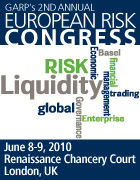There has been much debate about when the government’s investment in the banking industry should end. I told someone recently that this reminds me of a patient being prescribed a 5-day course of antibiotics. After two days, she feels better and wants to know if she can stop taking the medicine now? The answer of course is NO, you must complete the course. The government seems to be at the same stage with the banking industry – but do we really know what the best course is or should be and when does this phase end?
While there is still uncertainty about the economy, it is becoming widely acknowledged that a divestiture plan needs to be put in place sooner than later, and is probably best executed over time to avoid negative market impact. Some progress appears to have been made in policy and practice reform; but the markets are not totally comfortable that proper risk management procedures have been implemented – I believe for example that stress testing could be dramatically improved with more robust scenario analysis; risk management organizations still appear to need some refurbishing; and not least, I am not sure we have done all the Training we need to do in the market across risk-takers and risk-managers, from Board Members to executives to analysts and everyone in between. It also seems counterintuitive for the government to pull out while various proposals for financial regulation are still pending. In many ways it seems continued Government investment makes the debate for reform easier – we need to protect the tax-payers. And would confidence not get totally destroyed if soon after a complete Government pull-out, there was need for them to come back in again.
The counter argument of course is that from a risk perspective, the issue is of the Government as regulator. Ergo, the role of Government as owner is irrelevant; some may even argue the ownership stake is a needless conflict and distraction. And shouldn’t the Government and the taxpayer take the profits off the table? (note though that the large profit is on paper!). Regardless of its ownership stake, the Government retains full rights and responsibilities as regulator and we should all expect best risk practices and governance across the financial industry and at TARP companies specifically. And taxpayers are better served by keeping them out of risky businesses, and it is time to let private shareholders back fully into that area as voluntary risk-takers (of course, and unfortunately, we operated under that assumption long before the financial crisis took hold and look where we are now).
It seems clear Government support of the financial industry at the height of the crisis instilled confidence in the markets and, perhaps, helped avert a greater economic downturn. The real question now seems to be can sustained economic growth be achieved when the major risk-taking enterprises operate in the shadow of Government ownership.
What do you think?






2 comments:
Government’s investment in the banking industry should be sustained, at least for another year. While we are seeing some signs of improvement in economic growth, confidence in financial markets still has not fully recovered.
To answer the question, I would say that sustained economic growth has a higher possibility of being achieved if we keep government funds in the banking industry, than if we take government stimulus out of the banking industry. Although there are arguments to be made against the use of funds given to banks, the investment in the banking industry has instilled some investor confidence. Which as a result
Government has provided stimulus in 2009, and it is obvious that the stimulus would need to be sustained, if not increased in the coming year. The U.S. Government compiles data on unemployed Americans. With an unemployment rate of 17%, (Shown on 1 Table A-12 on the Department of Labor’s website for Sept. 2009. [1]) we cannot possibly think that our economy has completely recovered.
Even with strong efforts from policymakers, the World Economic Outlook projections assume that stabilization of the financial market will take longer than planned. [2] Of course the government should cease to provide stimulus funding at some point. They should be careful of when they decide to take out the funds, and most importantly they should pay close attention to the sequence in which the funds are taken out. It would definitely shake investor confidence if government funds were to cease, and then come back in again; assuming that policymakers thought it was the right time to come out.
In conclusion, government spending has helped the economy, however I would propose that they make some changes in the way they stimulate the economy. Government spending has not always been effective in stimulating the economy in the long-term; however; this does not stop them from further stimulus spending. Policymakers should focus on improving productivity, which is more chal-lenging than short-term stimulus spending, but will provide more help in facing future economic slumps. [3] Another way to help sustain economic growth is to provide more training to risk takers, and risk managers across all levels of the organization.
[1] http://www.bls.gov/news.release/empsit.t12.htm
[2] http://www.imf.org/external/pubs/ft/weo/2009/01/pdf/text.pdf
[3] http://www.heritage.org/research/budget/bg2208.cfm
The government's investment in the banking industry was required under under exceptional circumstances. The banking sector suffered on account of macro economic issues. This is nothing to do with government investment. Although the poor risk managment exhibited by banking sector is to be blamed, infact there was not much scope otherwise under the given macro economic circumstances to boost the bottom line. What ever investment various government has done need to be withdrawn in a phased manner just to provide psychological comfort to the common man and to the market. It is necessary to bring back normalcy by changing the macro economic policy to bring back more balance in world economy.
Post a Comment